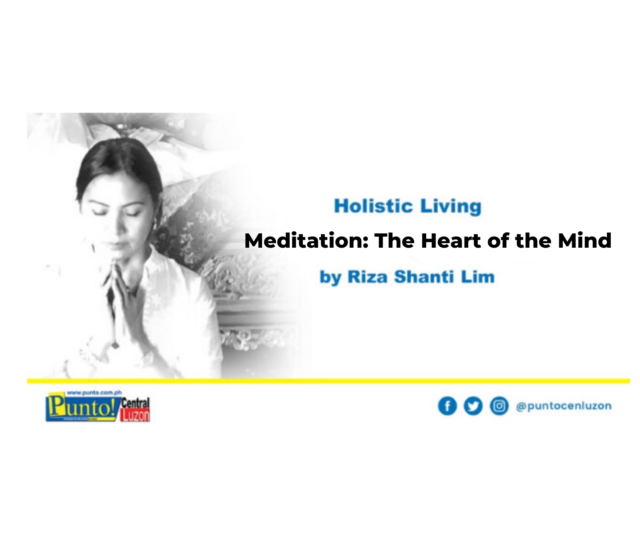THE OUTBREAK of coronavirus brought uncertainty, an overwhelming mental and emotional disturbance to most people – adults and children alike, world-wide. It is frightening for its unpredictability in nature. The anxiety, panic, sadness, depression brought about by the thoughts of fear is difficult to ignore particularly in the faces of older adults – who are in higher risk of serious illnesses, they feel socially isolated, especially those who live alone. The same goes, to the low– or no–income households.
Meditation is a natural and helpful medicine that could educate us on how to ease the stress and chaos in the mind. To learn how to surrender and to trust the moment, staying stable, grounded, anchored and balance, despite the fact of inconvenience, is essential to survive this crisis.
Meditation is a form of mind training practice. It aims to tame the mental chatter, offering a relaxed, peaceful and calm consciousness.
Meditation shows us how to live in the now, detach from the past and to stop focusing on the future. A healthy mind begets a healthy body. We are shaped by our thoughts, we become what we think…
Meditation is not a religion. It is a practice for one’s well-being. It detoxifies the brain from all the accumulated stress overtime. It allows the mind to rest – like going for a vacation, to refresh and rejuvenate. It promotes good sleep, heightens joyful mood; reduces panic and depression attack; lowers high blood pressure and cholesterol; boosts mental clarity, focus and brain memory; enhances sense of serenity and peace; strengthens the over-all immune system; increases energy; alleviates minor pains and aches; better complexion and glowing skin; a great anti-aging formula! Anyone who is capable of understanding the guidelines and techniques of the practice can perform the method.
When is the right time to start a meditation practice?
NOW is the right time!
Let us start with the Mindful Breathing Meditation, the simplest and easiest technique for beginners, yet highly effective.
Preparation and Guidelines: Freshen up before the practice. Avoid food intake two hours before the process. Wear loose, comfortable clothes and remove your shoes or slippers. Choose a quiet room or place.The room temperature should be just right – not hot or cold. The lighting should be dim, not bright. You may use aroma oils or music or any tool that has relaxing effect on you.
Let’s start. Sit with your back straight – chair or on the floor. Place your hands on top of your lap comfortably and try to relax your whole body. Slowly take a deep inhalation and try to elongate your exhalation. Do this cycle five times.
Now, close your eyes and put your attention only on your breath work. Breathe in through your nose for four counts and breathe out from your nose for four counts. Make the flow of your breathing smooth and effortless. Observe the air coming in and out of your nose. Do this for 2 minutes.
Next, breathe in for four counts, hold your breath for four counts, breathe out for four counts (eyes staying closed). Repeat this cycle for 3 minutes. As you progress in your practice, you may want to add more minutes or cycles.
Now, gradually shift back to your normal breath… Feel the sensation of calm and peace in your body… Stay for a while and enjoy the moment.
When you are ready, gently open your eyes, put a smile on your face and give yourself a loving big hug!
Namaste.





